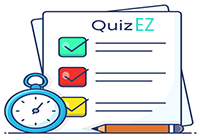



| Question | Answer | |
|---|---|---|
| 31 |
When ADHD learners find it difficult to stay on task, often act before thinking, act as if " driven by a motor" and talk excessively, they are displaying: |
Hyperactivity |
| 32 |
There are a number of symptoms the educator can watch for to determine if a student has ADHD: |
Problems staying on required tasks, especially if they are not interested in the subject matter. |
| 33 |
ADHD learners have problems staying on required tasks, especially if they are not interested in the subject matter; such learners may: |
be easily distracted; be forgetful in daily activities, not seem to listen when spoken to directly |
| 34 |
It's beneficial for educators to recognize chronic behavior such as: |
Poor motivation and lack of interest |
| 35 |
Persons with substance abuse problems are protected by the ADA and should be: |
referred to the appropriate professional source for help; given reasonable accommodations; subject to the same documentation standards as other students with disabilities |
| 36 |
To make the student more comfortable in the classroom, the master educator will:
|
Encourage self confidence |
| 37 |
Knowing the barrier to learning will prove to be an asset to the educator, be on the alert for: |
Learner apprehension, rapid response, lack of learner motivation |
| 38 |
students exhibiting. Anxiety in the classroom need the educator to: |
Be empathetic |
| 39 |
Apprehensive students will compare themselves, their knowledge and their responses to the way they are perceived by everyone else in the classroom; thus, the master educator will: |
Establish a competitive classroom; establish strong and frequent eye contact; have the learner speak before the group |
| 40 |
Master educator use memory cues known as: |
Mnemonics |